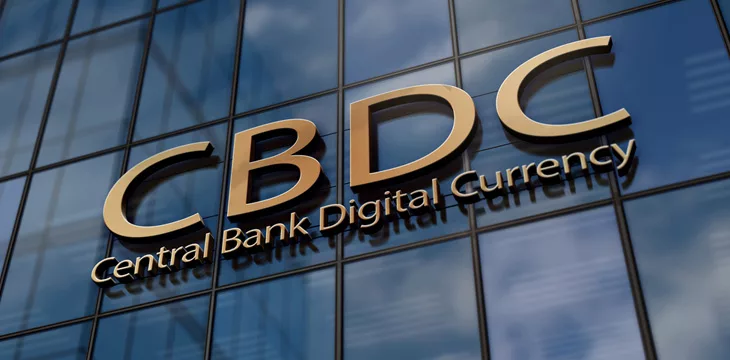|
Getting your Trinity Audio player ready...
|
The World Bank has been part of some of the most defining financial innovations, including the first-ever currency swap back in 1981. Its latest focus has been on digitalization, and as a top executive revealed this week, it’s weighing issuing a digital bond that settles in the digital Swiss franc.
Jorge Familiar, the World Bank treasurer, was part of a panel at an industry event organized by the Swiss National Bank (SNB) in Zurich. He was joined by SNB Chairman Thomas Jordan, Bank for International Settlements (BIS) Economic Advisor Hyun Song Shin, and Dong He, an International Monetary Fund (IMF) director.
Familiar pointed out that the World Bank has been leveraging DLT to issue digital bonds for years. Its first effort was in 2018 in Australia, making history as the first bond issued entirely on DLT.
In its second effort in October 2023, it issued a €100 million ($107 million) digitally native note on Euroclear’s issuance platform. The note was listed on the Luxembourg Stock Exchange.
While the first DLT issuance was only on the securities side, the second one involved a token, and for Familiar, “the next logical step is to do one with a central bank digital currency.”
He added that the World Bank is watching CBDC developments in Switzerland and “if market conditions allow for it, I mean, why not? We would certainly be interested in exploring something.”
The World Bank is exploring DLT beyond digital bonds, with transparency, efficiency, and digitalizing manual paper-based processes among the benefits the institution targets. It’s currently exploring the application of technology to digitalize pledges made by donor countries to its International Development Association, which presently exist as paper-based promissory notes.
“We are serious issuers in the global financial markets, and I think the fact that we’re moving there means we believe that this technology is something that’s worth pursuing,” Familiar told the audience.
Swiss National Bank against retail CBDC
At the same event, the chairman of the governing board of the SNB dismissed the need for retail CBDC despite the country’s world-leading initiatives in the field.
Thomas Jordan delivered a keynote presentation to set the tone for the event, delving into the SNB’s role in financial stability amid increasing digitalization, the central bank’s CBDC efforts, and tokenization.
“This year, around 2.5% of Swiss franc bonds have been issued in tokenized formats,” he revealed.
To support these tokenization efforts, SNB launched Project Helvetia III last year to supply wholesale digital francs to commercial banks. In February, the city of Lugano settled its second digital bond, valued at $114 million, using this wholesale CBDC.
SNB, however, dismissed retail CBDCs despite their popularity globally. Jordan claimed
that the Swiss market “already have access to a wide range of efficient and innovative payment instruments offered by the private sector.”
“Retail CBDC could fundamentally alter the current monetary system and the role of central banks and commercial banks, with far-reaching consequences for the financial system,” Jordan added. “From a Swiss perspective, the risks of retail CBDC currently outweigh its potential benefits.”
While SNB shuns retail CBDCs, other central banks are warming up to them and edging closer to issuance. Jamaica, the Bahamas, and Nigeria are the only countries that have launched their retail CBDCs, but the uptake has been relatively slow.
Others like China, South Korea, Thailand, Russia, Japan, and Australia are at varying stages in their CBDC pilots, with China the undisputed leader in this group.
To learn more about central bank digital currencies and some of the design decisions that need to be considered when creating and launching it, read nChain’s CBDC playbook.
Watch: Blockchain provides perfect foundation for CBDC

 07-02-2025
07-02-2025 





